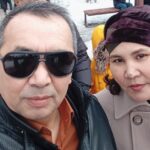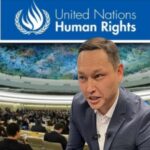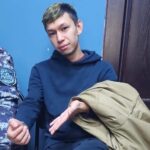This
document is presented by the following organizations: the NGO Coalitions
Against Torture in Kazakhstan, Kyrgyzstan and Tajikistan, the Turkmen
Initiative for Human Rights, the International Human Rights Association “The
Fiery Hearts Club” of Uzbekistan, the Helsinki Foundation for Human Rights
(Poland) and International Partnership for Human Rights (Belgium)
Torture:
An overview of concerns in Central Asia
Many problems and similarities of
today’s criminal justice systems in Central Asia stem from the legacy of the
USSR, when the rights of detainees were systematically violated.
Since the break-up of the Soviet Union
the five Central Asian countries have taken some steps to strengthen legal
safeguards against torture. They have all become parties to important
international human rights treaties, such as the International Covenant on
Civil and Political Rights and the Convention
against Torture and Other Cruel, Inhuman or Degrading Treatment or Punishment.
In 2008, Kyrgyzstan and Kazakhstan were the first Central Asian
countries that became parties to the Optional Protocol to the Convention against Torture and have since adopted
legislation setting up National Preventive Mechanisms (NPM).
However, all Central Asian states have
yet to implement many of their international human rights obligations in the
area of torture prevention as well as crucial recommendations issued in this
area by UN human rights bodies such as the Committee against Torture, the UN
Human Rights Committee, under the Universal Periodic Review, as well as by the Special Rapporteur on torture.
While the
Special Rapporteur on torture has visited Kyrgyzstan, Kazakhstan and
Tajikistan in recent years, Turkmenistan has never granted him
access to the country and a request for a visit to Uzbekistan has been
pending since 2006.
Torture is widely used across the
region and impunity for torture is widespread. In all five
countries torture mainly takes place during the first hours of detention when
detainees are in many cases held incommunicado, without access to legal counsel
and medical personnel, but torture cases are also reported from later stages of
detention and imprisonment. Those detained or imprisoned on charges related to national
security or “religious extremism” are at particular risk. In Uzbekistan, for example, the health of
many prisoners serving lengthy sentences on such charges is known to have
deteriorated badly due to ill-treatment and deplorable prison conditions and
cases of deaths in prison have been reported regularly. In Turkmenistan the authorities continue to withhold information about
the whereabouts of dozens of people arrested and convicted in connection with
the alleged 2002 assassination attempt on former President Saparmurad Niyazov.
Many of them were believed to have been subjected to torture and some
reportedly died in custody.
To different degrees, all Central Asian
countries continue to use the criminal justice system as a means to control and
curtail opposition. For many within the criminal justice systems of these
countries the incentives to apply torture are greater than the disincentives.
For example, while the risk of punishment for abuse is very small, torture
or other ill-treatment open up avenues for additional income as law enforcement officers and prison
personnel frequently apply torture to extract money from detainees and
prisoners. In addition, Central Asian law enforcement officers continue to be
assessed – albeit unofficially – by the number of crimes they solve, a system
that exacerbates the risk that police resort to torture to
obtain a confession to a hitherto unsolved crime.
Human
rights defenders and lawyers defending torture victims are at risk of
repercussions, particularly when the detainees are held on charges involving
“religious extremism“, terrorism or undermining national security. In many
cases activists are closely monitored by the authorities; they are subjected to
excessive checks and in some cases NGOs have been threatened with liquidation
of their organizations as a result of their human rights work. In Turkmenistan no independent human
rights group is able to operate openly at all.
We are also concerned that in the name
of national security, security services of CIS countries, particularly of Kazakhstan, Russia and Ukraine, have forcibly returned
numerous suspected members of banned Islamic groups or parties to Tajikistan and Uzbekistan. Many of them were subjected to torture. Under
international human rights law, in particular the Convention against Torture,
states are prohibited from sending anybody against their will to another
country where there is a real risk that they will be subjected to torture or
other ill-treatment.
Recommendations
Below we outline what we see as the
most pressing steps that Central Asian OSCE participating States, all other
OSCE participating States and OSCE institutions should take in order to make
significant progress towards the eradication of torture in Central Asia, and to
ensure better coordination of efforts in this regard.
Recommendations to the governments of
the Central Asian OSCE participating States:
The
authorities of all Central Asian states should:
- Promptly act
on all complaints involving allegations of torture and ill-treatment by
initiating thorough, impartial and independent investigations, punishing
those found responsible, providing adequate and full compensation to
torture victims, and reporting on the measures taken in mass media. - Provide the
main safeguards of detainees against torture: a) Ensure that the right to access to a lawyer of the detainee’s
choice from the moment of deprivation of liberty is fully implemented; b)
introduce and strictly enforce police registration of a person’s detention
without delay after the actual moment of detention; c) ensure that routine
medical examinations of anyone arriving at a detention facility are
carried out; and d) ensure that the remand hearing takes place no later
than 48 hours after the moment of detention and that judges inquire into
the legality and grounds of detention and the detainee’s treatment in
custody. - Elaborate and
introduce in the legislation the institution of independent forensic
medical examinations and increase the number of qualified medical
personnel in police detention and pre-trial facilities. Ensure that
medical personnel working inside detention facilities are truly
independent of law enforcement agencies and are trained on the provisions
of the Istanbul Protocol. - Introduce
legislation to create an independent body that is endowed with sufficient
authority and competence to conduct prompt, thorough and independent
investigations into allegations of torture or other ill-treatment.
- Ensure that human rights defenders are protected from ill-treatment,
threats and repressions resulting from their anti-torture work and that
law enforcement officers are punished for carrying out such measures under
relevant administrative or criminal legislation.
-
Conduct
regular and genuine consultations with civil society organizations, journalists
and lawyers on necessary reforms of the criminal justice system as well as on
policies regarding torture prevention and their implementation.
The
following recommendations are addressed to specific Central Asian OSCE
participating States:
- The
authorities of Kazakhstan
should ensure that the National Preventive Mechanism (NPM) is fully independent of the executive
branch of power, including that it is financially autonomous. - The authorities of Kyrgyzstan should ensure that the National Centre for the Prevention of
Torture, the country’s NPM, is provided with the necessary financial,
human and material resources to fulfil its mandate independently and
effectively. - The
authorities of Tajikistan
should grant prompt, independent and full access to the Monitoring Group established under the
Ombudsman to all temporary detention facilities (IVS), pre-trial detention
facilities (SIZO) and other places of deprivation of liberty to civil
society activists, in order to conduct independent monitoring. The
authorities should also promptly ratify the Optional Protocol to the Convention against
Torture. - The authorities of Turkmenistan should publish comprehensive
statistics on how many investigations and criminal cases have been
instigated under the crime of “torture“, which was introduced to the Criminal
Code of Turkmenistan in August 2012 (as Article 182-1). - The
authorities of Turkmenistan and
Uzbekistan should promptly accept
pending invitations from the Special Rapporteur against torture.
Recommendations
to other OSCE participating States:
In accordance
with the principle that issues relating to human dimension commitments are
matters of direct and legitimate concern to all OSCE participating States,
participating States from outside Central Asia should:
-
Urge the governments of the
Central Asian states to promptly implement all recommendations included in the
section “Recommendations to the governments of the Central Asian OSCE
participating States“ and make the topic of torture prevention a priority in
bi-lateral meetings and human rights dialogues.
- Provide
comprehensive support to Central Asian human rights defenders working on
torture, including by urging the authorities to put in place legal
safeguards regarding freedom of association and by encouraging programmes
that provide psychosocial support to lawyers and activists.
-
Make all programmes, where foreign
governments provide training, support or cooperate in other ways with Central
Asian government agencies, in particular those directly engaged with law
enforcement agencies and the military, conditional on the observance of
international human rights standards, particularly those regarding
torture.
- Ensure that
no one within their jurisdiction is returned to any country where they
would be at risk of torture or other ill-treatment.
Recommendations to the whole OSCE
community and OSCE institutions:
-
The Office for
Democratic Institutions and Human Rights (ODIHR) should significantly step
up its support of governments and civil society organizations in their work
relating to the eradication of torture. It should increase its efforts to
support governments in implementing international standards and obligations as
well as recommendations of international human rights mechanisms and
procedures. -
OSCE institutions should pay special attention to the
creation of favorable conditions for human rights defenders in OSCE member
states, so that they can freely carry out their work on torture prevention.
They should focus on enhancing the safety of human rights defenders and support
programmes that provide psychosocial support to lawyers and activists. ODIHR should collect and promote
examples of best practice and recommendations in this area.
- OSCE offices in Central Asia should
provide comprehensive support to all civil society organizations, lawyers
and journalists working on torture prevention, including through engaging
in regular consultations, providing financial and other support, and
facilitating dialogue with relevant state institutions. - OSCE offices in Central Asia should
ensure that torture prevention measures and civil society control are
included in all relevant OSCE projects, such as those dealing with police
reform and the fight against corruption.
-
The OSCE Centre in Kazakhstan should monitor the effectiveness of the new NPM and support the efforts of the NGO Coalition Against Torture in Kazakhstan to
establish an independent torture complaints mechanism. It should also engage in
monitoring trials to determine how the courts deal with torture complaints
submitted during pre-trial proceedings. -
The OSCE Centre in Kyrgyzstan should
continue to support the independent monitoring of detention facilities. It
should support NGOs to cooperate with the NPM and it should help NGOs clarify
to the authorities and the general public the difference between the work of
the Ombudsman on the one hand and the NPM on the other, and how these two
institutions can complement the work of one another.
The
OSCE Office in Tajikistan should increase its efforts to facilitate dialogue
between the NGO Coalition Against Torture, other civil society organizations
and government agencies on the topic of independent monitoring of detention
facilities. In particular, the OSCE Office should support discussions between
NGOs and the Interior Ministry aimed at initiating monitoring of pre-trial
detention facilities. The OSCE Office should routinely raise individual torture
cases with the authorities and engage in improving legislation on torture
prevention.

















